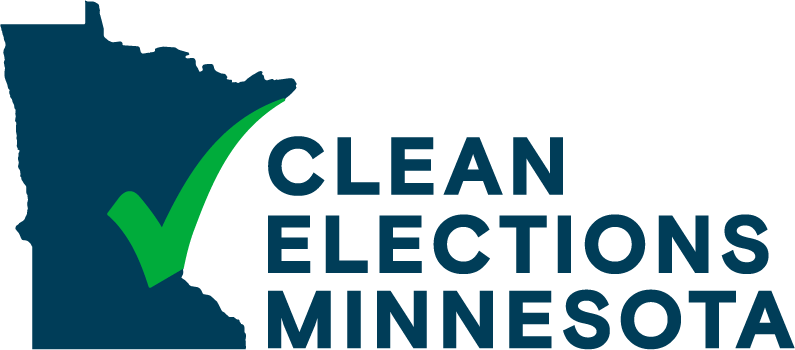Elon Musk remains one of the most powerful figures in American politics, though he may soon leave the Trump Administration and his candidate recently lost in the Wisconsin Supreme Court justice race after he spent about $25 million.
America has had other ambitious, self-involved uber-rich individuals before. However, none has exercised power like Musk as seen by his employee-slashing, cost-cutting leadership at the Department of Government Efficiency, or DOGE. How did he get that power?
The answer lies in today’s favor-the-rich, pay-to-play campaign finance rules. Before reviewing them, here’s a quick look at Musk’s recent political spending. In the 2024 presidential campaign Musk spent at least $290 million supporting Trump’s candidacy with about a quarter billion going to America Political Action Committee, Musk’s super PAC. It was America PAC’s money that paid the million-dollar awards Musk presented to Trump backers in Pennsylvania and gave first $47 and, later, $100 for names and addresses of swing state voters, a tactic he also used in the Wisconsin Supreme Court race. Most important, it funded big canvassing drives in the swing states, but more on that later.
Musk also was the sole funder ($20 million) of the RBG PAC whose ads falsely claimed Trump’s abortion views were similar to those of late U.S. Supreme Court Justice Ruth Bader Ginsberg. A third Musk-funded super PAC — Building America’s Future — paid for ads run by another PAC directed at Michigan’s Arab-Americans accusing Kamala Harris of being pro-Israel, as well as contradictory ads aimed at Pennsylvania’s Jewish voters claiming Harris was pro-Palestinian.
By normal measures, spending almost $300 million is a lot, but it’s not much by Musk’s standards. In January, the website Coin Codex calculated Musk’s earnings at $96 million daily, or $4 million per hour. He owns 20% of Tesla and 54% of Space X. With their recent stock price decline, Musk may be down to earning a paltry $2-3 million hourly.
Changes in campaign finance law explains Musk’s influence today. Since the 1940s, political action committees (PACs) have been a means for people of similar beliefs, like union members or small businesses, to enhance their power by joining together and giving larger contributions than they could individually. PACs are limited in that they can only accept $5,000 per individual annually so no individual can play an outsized role. PACs can donate unlimited amounts to candidate campaign committees or other PACs or can spend the money themselves for ads, etc.
Super PACs, like Musk’s America PAC, are different. They can take unlimited amounts from individuals, though they were originally only supposed to spend independently of campaigns. Super PACs resulted from a federal appellate court decision, SpeechNow v. Federal Election Commission (FEC), made soon after the Supreme Court’s 2010 Citizens United ruling tying campaign contributions to protected free speech. The SpeechNow court said statutory campaign committee donation limits were OK but there could be no limit on contributions to groups (Super PACs) that make only independent expenditures, since by virtue of their independence they “cannot corrupt or create the appearance of corruption.”
The court’s logic was that super PACs couldn’t corrupt since they were barred from donating to or coordinating with candidates’ campaign organizations. Since the 1975 campaign finance case Buckley v. Valeo, courts have warned against the quid pro quo of campaign contributions — directly buying influence from elected officials by working with campaigns.
That once-imposing dividing wall mostly collapsed in March 2024. Then the FEC, in a puzzling advisory opinion, said since get-out-the-vote canvassing involves talking face-to-face with voters, it wasn’t “public communication” and therefore information derived from canvassing could be shared with campaigns. In other words, direct cooperation between independent Super PACs and campaigns was no longer forbidden.
Though the request for the FEC opinion came from a Democrat-supporting, George Soros-funded super PAC, the decision opened the wallets of Musk and funders of other smaller pro-GOP super PACs. The Trump campaign began working with super PACs on canvassing swing voters, which meant the campaign avoided spending time and money on its own voter ID operations.
In fact, Musk’s America PAC conducted big canvassing operations in all seven swing states and regularly shared findings with the campaign in pre-election days and weeks. Though those findings will never be publicly disclosed, it’s safe to assume they were critical in devising effective strategies to persuade potential Trump supporters.
Apart from the existing $15.5 billion and future Space X and Tesla federal contracts, Musk has already appeared to have received regulatory pay-back — the once forbidden and illegal quid pro quo — for his comparatively small expenditure (for him) on Trump’s behalf.
A few examples. First, in February the Department of Justice (DOJ) dismissed a civil case accusing Space X of discriminating against non-citizens in hiring and promotions. Second, though a federal judge recently temporarily halted the process, the Trump administration wants to eliminate the Consumer Finance Protection Bureau, which had over 200 complaints against the Tesla Corporation. Finally, the DOJ set up an internal task force to investigate and prosecute vandalism on Tesla charging stations and dealerships, a task that typically would be up to state and local authorities.
Considering the federal courts’ embrace of big money, ending the domination of our politics by Musk and others like him will be difficult. Nevertheless, to preserve our democracy it must be done by both state and federal policy makers and, ultimately, we citizens.
Ken Peterson, of St. Paul, is a board member of Clean Elections Minnesota, a non-partisan group advocating campaign finance reform. He served as commissioner of the Department of Labor and Industry under Gov. Rudy Perpich and Gov. Mark Dayton.
